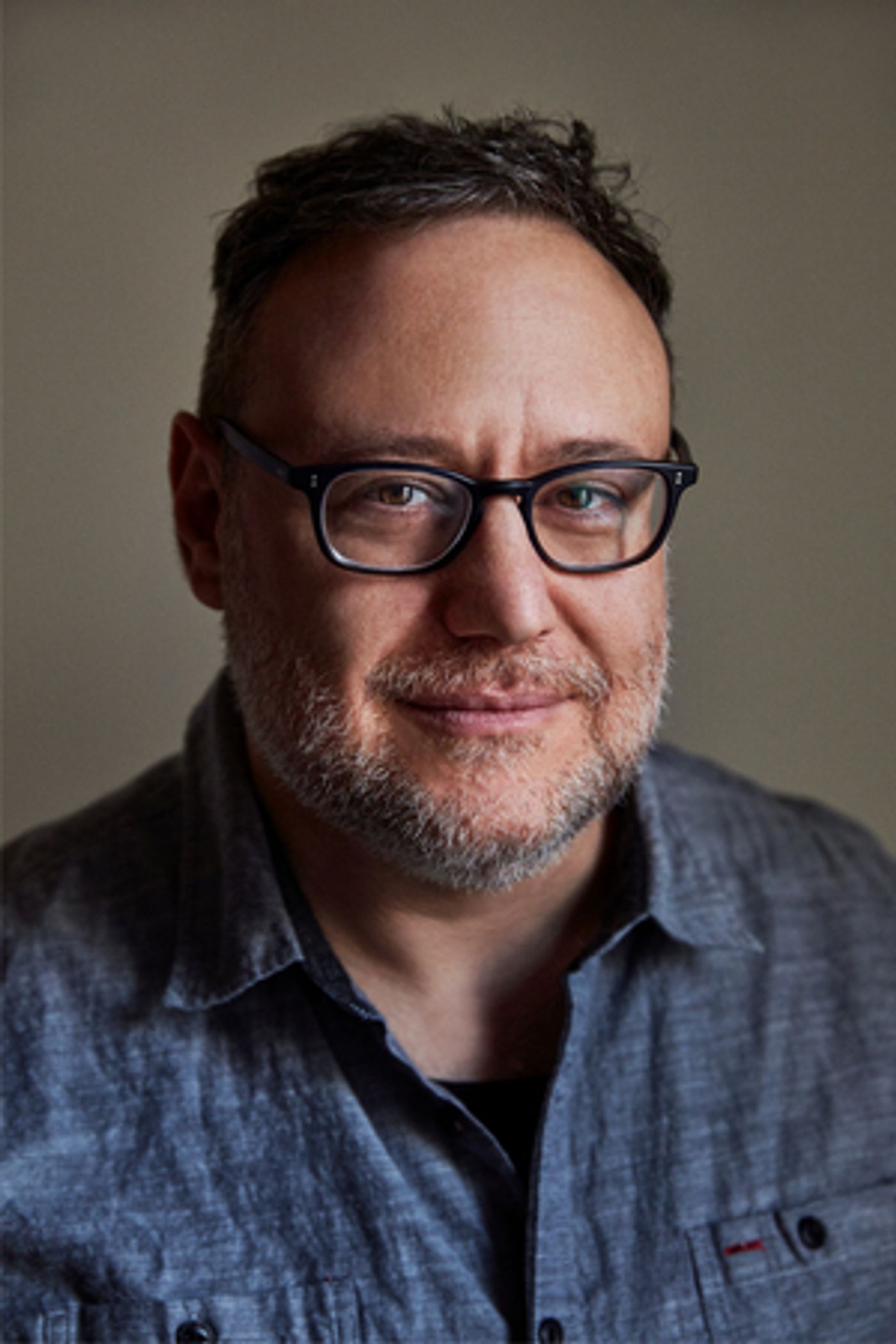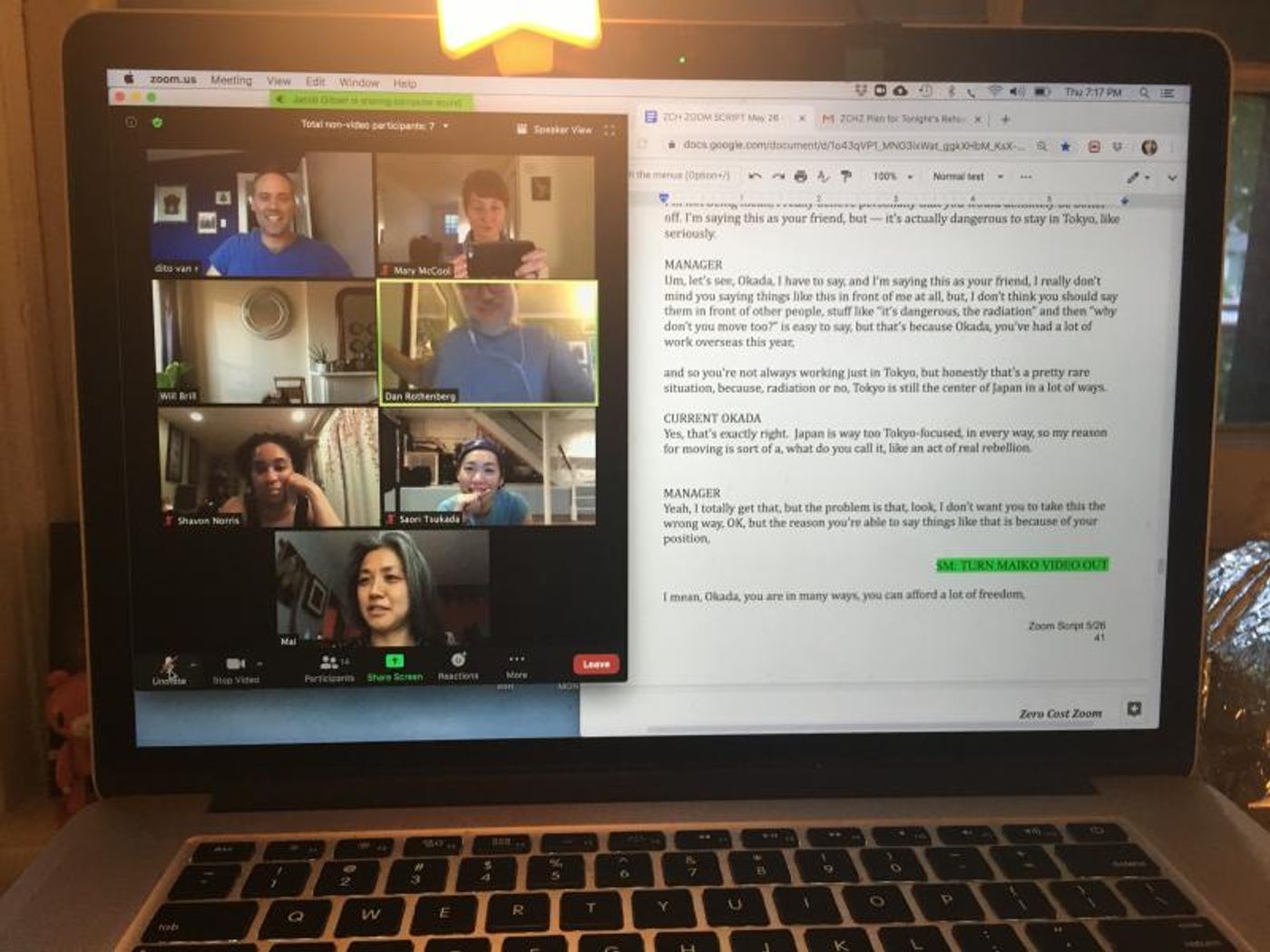Interview: Pig Iron Theatre Company Co-Founder Dan Rothenberg Talks Toshiki Okada's ZERO COST HOUSE and More
ZERO COST HOUSE runs virtually through Friday, September 25th.

Dan Rothenberg is a co-founder and co-artistic director of Pig Iron Theatre Company and has has directed almost all of Pig Iron's original performance works, including the OBIE Award-winning Chekhov Lizardbrain and Hell Meets Henry Halfway. Pig Iron's work is organic, creative, and acclaimed, having toured 15 countries with stops at the Humana Festival, Edinburgh Fringe, Under the Radar, TR Warszawa, Konfrontacje Teatralne Festival and Tokyo Performing Arts Market.
During this time in which theatres are discovering how best to keep theatre alive, Rothenberg has adapted and is directing Toshiki Okada's Zero Cost House. A semi-autobiographical text written for Pig Iron Theatre, Zero Cost House follows a writer as he reflects on his younger self in Yokohama. The play charts a nuanced, internal, ethical journey in the wake of the 2011 Fukushima meltdown.
The next performance of Zero Cost House takes place on Friday, September 25th at 8pm: https://www.pigiron.org/productions/zero-cost-house-zoom.
We spoke with Dan Rothenberg about bringing this play to the screen, how Pig Iron is developing theatre in the midst of the ongoing pandemic, what the future holds for Pig Iron and more!
Tell me a bit about your history with Pig Iron Theatre Company!
I started the company with some friends from college the day after I graduated in 1995. We were inspired by Joe Chakin's Open Theatre and Mnouchkine's Teatre du Soleil to make a company that was part research lab and part ensemble theater. Over 25 years, I think the company has evolved to become a platform for formal experiments in performance as well as a place to invest in deeply personal projects. And just a place to try stuff that shouldn't work, but you want to try it anyway.
How has it been overall for the company learning how to create theatre during this time, and keeping the company moving forward in this new virtual theatre world?
Look, there's no denying this is a terrible situation for a company that focuses on liveness and on human breath and physical touch. But in some ways, our practice of making work that begins from extreme limitations - or maddening constraints - forcing ourselves to find the fun in that, that's been the best training ground one could have for this situation. I'm drawn to people who aren't disappointed by how many failures it takes to get to something good, so this community around Pig Iron is still very inspiring to me.
Talk to me about Toshiki Okada's Zero Cost House. What is it like presenting this production virtually?
 We started very gingerly, iteratively. First we just read it online, then we did one day of Zoom experiments, then we thought, maybe we can present this for a few days. Then we thought, hey this is actually better than the original! Let's really broadcast this to the world.
We started very gingerly, iteratively. First we just read it online, then we did one day of Zoom experiments, then we thought, maybe we can present this for a few days. Then we thought, hey this is actually better than the original! Let's really broadcast this to the world.
Rehearsal is not so different from what you'd expect. We log on to Zoom and check in - we review parts of the script; we do improv exercises relating to the style of script. Probably the most exciting thing is that designer Maiko Matsushima did the most improvising in the process: improvising with miniatures, textures, puppets and almost-puppets. Normally it's the performers who do the most improvising, and the designers of costume and scenic elements are the people whose construction timelines need to catch up as best they can. But here, so much of the performer material already existed, so Maiko was the true improvisational engine in this process.
One thing we've always stuck with over our 25 years is beginning with a warm up. And this ensemble insisted that we stick to this even though we are all isolated in our own homes. So Co-Founder Dito van Reigersberg leads a warm up that begins sitting in chairs and leads to breathing and vocal exercises and then to full body stretches before each performance. And he has even figured out ways to warm up the connection between people through the screen.
What are you hoping the virtual audience takes away from the show?
Toshiki is a kind of minimalist, and the low-temperature performances, so-called "casual" performances, in this work are purposefully deceptive. I think at its best, when it does its work on people, an Okada play is disarming. You think it's no big deal, what they're talking about and then suddenly it turns out you care about it. This territory with Toshiki is part of my ongoing fascination with plays in which "nothing happens, but we're still interested." Or you could say, it feels like nothing happens but something massive is shifting underneath the surface. Some of the people who worked on this play originally ended up leaving theatre, or leaving acting! I think it actually inspired them to change their lives. I think we have a melodramatic fantasy about how change operates, that it happens climactically, that it happens with a burst of emotion or revelation. But Toshiki's vision of change has so much more to do with daily life and its rhythms. His work primes us to tune in to the self-censorship, in thought and in actions, that stop us from "doing the right thing" 1000 times a day. Tuning in to those moments that don't actually feel like much but maybe are the whole ball game.
What does it feel like to be able to create theatre at all during this time?
It's such a solace to work on a play with other artists during this time. Just the parts where we talk about what it means to us and we try to figure out how to make it work, it's a real port in a storm. I'm just really in love with this cast and this team.
What's so hard for any of us in the theatre sector, or actually any sector which depended on gathering people together in space, restaurants, concerts - it seems like all the tenuous economic bargains that had been struck have now completely fallen apart. And we are all just consumed with worry for one another that people won't be able to make ends meet, or find a way to care for relatives, or find a way to stay in their houses. I know these bargains - who gets paid for what, and how much - were already fraying terribly with the stratification of wealth these past 20 years. But now we can all feel the edge of the cliff approaching.
Tell me about what's ahead for Pig Iron Theatre Company!
Nine years ago, Pig Iron launched a grad program and I've been really inspired by the creations and adventures that grads of the program are having in the performance world. I've seen the grads create work in comedy clubs, in the visual art world, in live gaming, in cabaret- I feel like they are at the forefront of a big demographic shift, and cultural shift, in which you really can't predict where unusual and arresting performance is going to show up. This is something we were fighting for for decades, at Pig Iron, and I feel like it's now happening underneath our feet, the ground is shifting in ways that are frightening and destabilizing and super exciting. So my dream is for Pig Iron to start incubating work that can really fly in other milieus - be it stand up, or live music, or online performance. But that's a big dream, and a big pivot. We'll see. We'll have to see.
For more information visit: https://www.pigiron.org/
Photo Credit: Jason Rothenberg
Videos

